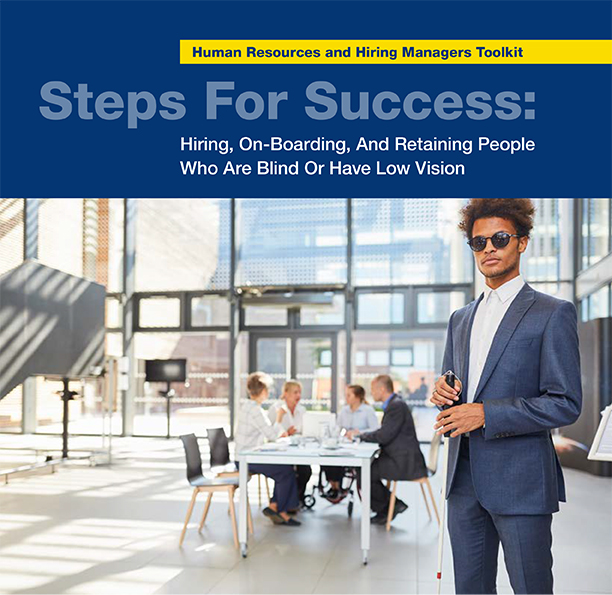Using research to drive action in improving laws and policies.
Creating a world of no limits requires action — and there was no shortage of the kind of action that can result in meaningful change at AFB’s Public Policy & Research Institute (PPRI) this year.
Much of this action comes in the form of research used to inform policymakers and others about the needs of people who are blind or low vision. PPRI’s Barriers to Digital Inclusion Survey (BDIS), for example, revealed that there were barriers “across the board” in using websites and mobile apps, said Arielle Silverman, Ph.D., AFB’s Director of Research.
“People reported that this limited their independence or the services and goods they could use online, because they had to use the app that’s most accessible,” she said. “There’s also a loss of privacy when they have to ask someone to help them with things like bank passwords or medical records online.”
There are additional phases of the BDIS in progress, and the data will be used to demonstrate the barriers people encounter in an effort to push for greater digital inclusion. You can read the report here: https://www.afb.org/barriers-digital-inclusion-survey
AFB also took action in response to its findings from 2021’s Workplace Technology Survey. According to Dr. Silverman, the results from the survey showed that many employers aren’t following the legal requirements in the Americans with Disabilities Act (ADA) or other laws that promote inclusion.

In terms of advocacy, AFB continues working with the Biden administration to strengthen rulemaking and enforcement under several laws that require digital accessibility, including the ADA. According to Stephanie Enyart, AFB’s Chief Public Policy and Research Officer, multiple meetings at the White House and relevant government agencies have resulted in the administration publishing a proposed rule to better define website and application accessibility under the ADA. Moving forward, AFB is working to improve the rule. Many of AFB’s research studies have been used by AFB’s allies, such as Hon. Tony Coelho — considered the father of the ADA — in pushing for stronger rulemaking.
AFB also worked in coalition to draft and advocate for introduction of the Websites and Software Applications Accessibility Act. This proposed legislation would improve enforcement of digital accessibility regulations and provide guidance and support for businesses implementing the law. Led by AFB, 52 organizations signed a statement for digital inclusion policies on Global Accessibility Awareness Day.
Playing to its strength as a convener, AFB hosted a panel at the 2023 AFB Leadership Conference, which involved people engaged in disability rights from across the beltway, including former White House officials.
Throughout the year, AFB also brought together representatives from big technology companies, disability rights advocates, other advocacy organizations, and key Congressional staffers for a series of dialogues about accessibility.
“We had a handful of meetings throughout the year to share our perspectives on the problems and solutions in terms of legislative or regulatory fixes,” Enyart said. “It was a dynamic conversation series that was helpful in understanding where influential players in the industry are, in addition to what our community needs. This type of mutual understanding is essential for effective policymaking. I think it really opened some doors.”